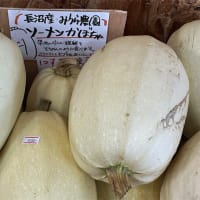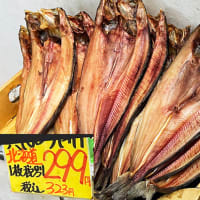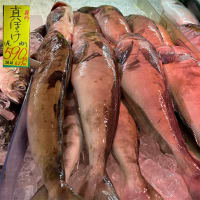


広島県福山市今津という地域はわが家に直接繋がる先祖が
商家として活動していたと家系伝承されています。
写真はその今津の中核的な施設としての「本陣跡」の最近の様子。
わが家はこの今津本陣の用向きを承っていたとされているのですね。
本陣とは江戸期の宿場で身分が高い者が泊まった建物。大名や旗本、幕府役人、
勅使、宮門跡らが利用した。原則として一般の者を泊めることは許されず、
営業的な意味での「宿屋」とはいえない。宿役人の問屋や名主などの居宅が
指定されることが多かった。また本陣に次ぐ格式の宿としては脇本陣があった。
ちなみに今津では古代の国造の時代からの有力豪族・河本家が本陣で
脇本陣にはわが家の菩提寺の蓮華寺が指定されていた。
今津は、西国街道で尾道と神辺の中間の宿だけれど、記録では
薩摩家などの有力大名の宿泊記録も残っているとされている。
松浦静山という江戸時代中・後期の肥前国平戸藩の第9代藩主が
退隠後書き残した「甲子夜話」の一節に「手代・勘蔵三十余」と字が間違って
書き記されているのがわたしの5代前の先祖。
正しくは「寛蔵」ですが大名・貴人に修正を申し入れるワケにはいかなかった(笑)。
かれ寛蔵は西暦1800年で満30才なのでその時期の消息。
世間知らずの殿様なので本陣一室に群居している様子を「和睦友愛」と書いている。
本陣というのはその地域有力者の居宅建築が指定され使用されるので、
平戸藩主という大名貴人一行の御用を承るために控えていたのでしょう。
茶を出すとか、食事の用意、寝所を調えるとかを大名、その家臣ごとに
それぞれの格式をわきまえながら接遇するのは気骨が折れたことでしょう。
ヘタを打てば「手討ちに致す」とされかねない。
それぞれの事柄について問われればその解説も申し上げねばならず、
「この茶はどこの産地のものか?」とか、「茶碗の由縁はどのようか?」
などと大名・貴人から問われれば答えなければならなかった。
それなりの知識習得などの対応も迫られたことでしょう。
わが家は河本さんから信頼されこの一室に一緒に同居してかしこまっていたので
頼りに足るとみなされていたと思われます。
経済面で見ると、本陣には宿泊者から謝礼が支払われたがそれは対価ではなく
あくまでも「謝礼」で対価としては十分なものとは言えなかったとされる。
そこで本陣指定に伴い主人には苗字帯刀、門や玄関、上段の間を設けることができるなど
特権が認められた。それらを名誉なこととして受け止め歓迎する向きもあったものの、
出費がかさんだことで没落する家もあった。特に江戸時代後期になると藩財政の悪化に伴う
謝礼の減額や家業(商業や農業など)の不振による経営難で、
元の本陣家が破綻して指定変えされたケースも少なくないとされている。
幸いにしてこの今津では一時期を除いてなんとか存続しているが
幕末には近在住民からの本陣「打ち毀し」にも遭遇している。
参勤交代の多大な出費問題は幕末情勢のひとつの大きな要因でもあった。
どんな経済的経緯があったか、ひもといていくカギはいろいろあるところです。
English version⬇
[Economic reality of Saigokukaido inn "Honjin" around 230 years ago in the Edo period]
In the area of Imazu, Fukuyama City, Hiroshima Prefecture, there are ancestors who are directly connected to my home.
It is said that he was active as a merchant.
The photo shows the recent state of "Honjin Ruins" as the core facility of Imazu.
It is said that my family was in charge of this Imazu Honjin.
Honjin is a post station in the Edo period where high-ranking people stayed. Daimyo, Hatamoto, Shogunate officials,
It was used by the envoy, the ruins of Miyamon. As a general rule, it is not allowed to stay in the general public,
It cannot be said to be an "inn" in the business sense. The homes of wholesalers and masters of inn officials
It was often specified. In addition, there was Wakihonjin as a formal inn next to Honjin.
By the way, in Imazu, the Kawamoto family, a powerful tribe from the ancient national era, is the main team.
Rengeji Temple, the family temple of my family, was designated as the Wakihonjin.
Imazu is an inn between Onomichi and Kannabe on the Saigoku Kaido, but in the record
It is said that there are also lodging records of leading daimyo such as the Satsuma family.
The 9th feudal lord of the Hirado Domain in Hizen Province, called Matsuura Seizan, in the middle and late Edo period
In the passage of "Kasshi Yawa" that I left behind after his retreat, the word "Teyo / Kanzo 30" is wrong.
What is written is my ancestors five generations ago.
The correct name is "Kanzo", but I couldn't make a request for correction to the feudal lord / nobleman (laughs).
Kanzo was 30 years old in 1800 AD, so he was informed at that time.
Since he is a naive lord, he writes that he is living in a group in the main room as "Wamu fraternity".
Since the main camp is designated and used as the home building of the influential person in the area,
It must have been gathered to accept the request of a group of daimyo nobles named Hirado feudal lord.
Daimyo, such as serving tea, preparing meals, and preparing a sleeping place, for each of his vassals
It would have been a pain to treat each other while understanding each form.
If you hit the calyx, it could be said that you're going to kill yourself.
If you are asked about each matter, I have to explain it,
"Where does this tea come from?" Or "What is the reason for the bowl?"
I had to answer when asked by a daimyo / nobleman.
It would have been necessary to take measures such as acquiring some knowledge.
My house was trusted by Mr. Kawamoto and I lived together in this room, so I was clever.
It seems that it was considered reliable.
From an economic point of view, the main team was paid a reward from the guest, but it was not the price.
It is said that the "reward" was not sufficient as a consideration.
Therefore, according to the designation of the Honjin, the master can be provided with a sword with a surname, a gate, a front door, and an upper section.
Privilege was granted. Although some people accepted them as an honor and welcomed them,
Some homes collapsed due to expensive expenses. Especially in the latter half of the Edo period, due to the deterioration of the clan's finances
Due to management difficulties due to reduced rewards and sluggish family business (commerce, agriculture, etc.)
It is said that there are many cases in which the original Honjin family went bankrupt and the designation was changed.
Fortunately, this Imazu has managed to survive except for a period of time.
At the end of the Tokugawa shogunate, he also encountered the "defeat" of the main team from nearby residents.
The large expense problem of the change of attendance was one of the major factors in the situation at the end of the Edo period.
There are various keys to what kind of economic background there was.



















